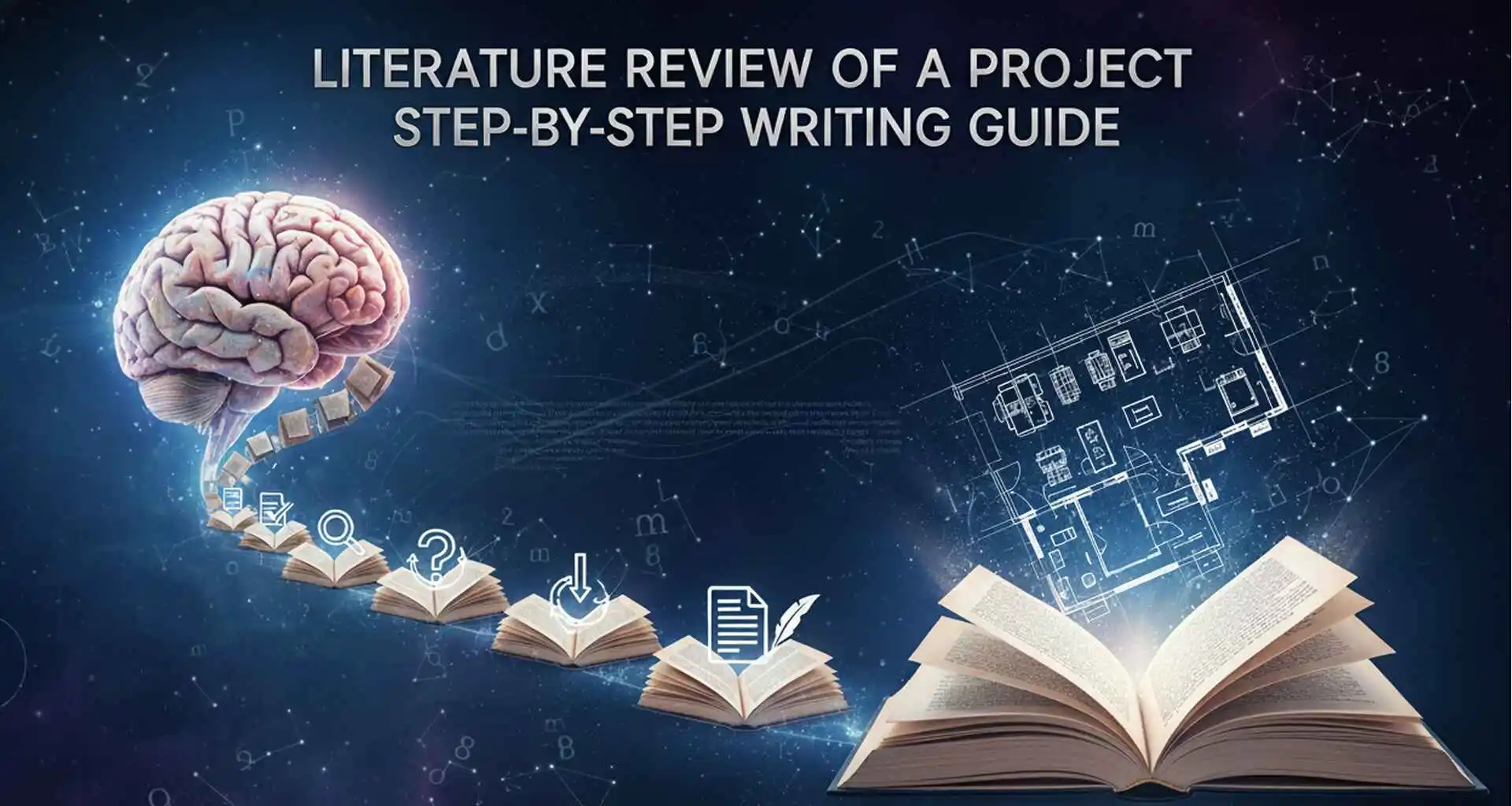
Williams
Literature review of a project is an essential component of any scholarly or research-based work. It links your study to prior theories, results, and academic discourses, displaying what has previously been studied and what remains to be explored. A literature review strengthens your project's foundation and establishes credibility.
In this blog, you will learn everything about writing your literature review of a project in detail. We will guide you step by step on how to identify, analyse, and synthesise relevant research sources. By following this approach, you will be able to create a structured, credible, and academically strong literature review for your project.
A literature review allows you to have a solid understanding of what has previously been researched in your area. That ensures your project draws benefits from previous research without merely replicating someone else's work.
By looking at existing research, you can see areas that are not explored or not well enough explored. This allows you to make your study new and worthwhile.
A literature review helps you build theories or concepts that will guide your project. Connecting your study to already established frameworks provides your methodology and analysis with robust grounding.
Finally, a literature review shows where your research fits into the broader academic conversation. It describes why your project is relevant and why your research matters.
Every literature review of a project begins with a good overview of existing research. It means referring to significant studies, results, and controversies of your topic area. By doing this, you provide readers with a good idea of the existing scenario and offer good context for your research as well.
A good literature review is not just the summary of sources—it is a critical analysis. It is the comparison and contrasting of results, looking at methodologies, and seeing what patterns or gaps there are in research. Out of this process of analysis, you are demonstrated to think critically and interpret research correctly.
One of the major elements of a literature review in a project is recognising the research gap. This is where you examine what has not been discovered or researched yet in the existing literature. By acknowledging the gap, you are explaining why you need to carry out your research and how your project is adding something new to the literature.
Your literature review establishes the theoretical or conceptual basis for your project. By situating your research within contemporary theory, you demonstrate how your work operates within broader academic thought and builds on contemporary models or concepts in your area.
Finally, any literature review of the project needs to conclude by briefly summarising conclusively the most applicable findings that have been concluded from existing studies. This section tells us what all the literature implies and anticipates your study's contribution. A good conclusion guarantees clarity and adequately transitions into your research purposes or methodology.
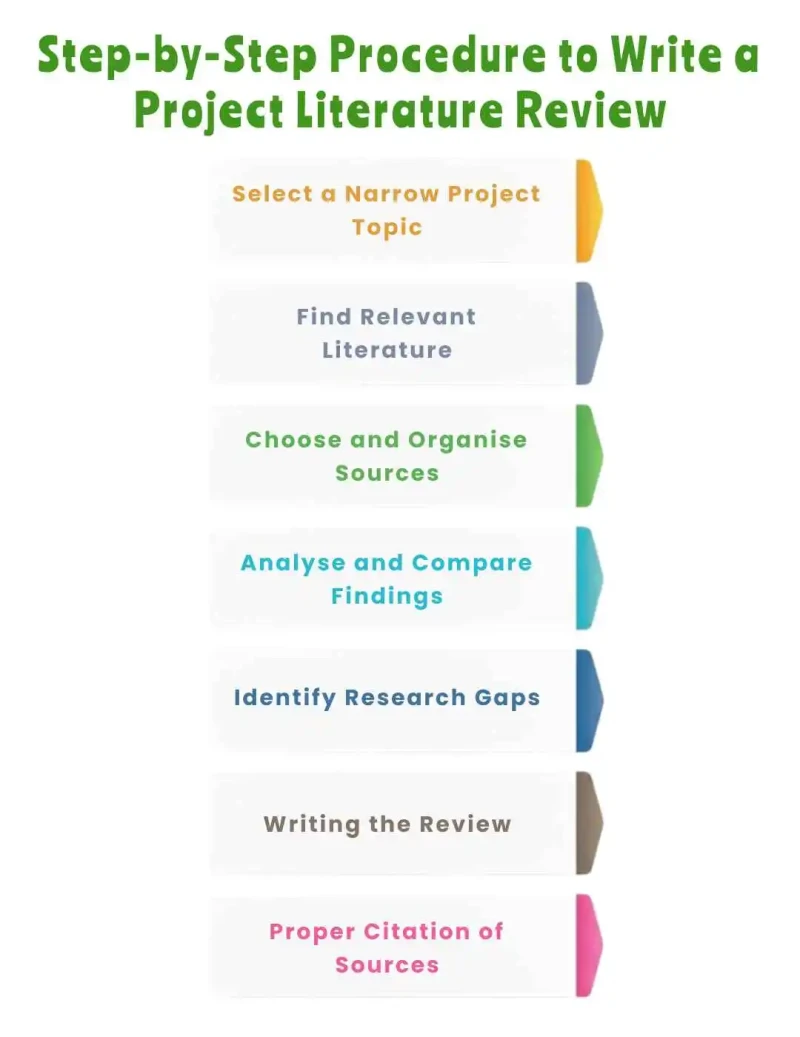
Selecting a specific and narrow topic is the first step to writing the project literature review. Your area of research should be specific in order to research in detail but general enough to locate enough academic material. A good topic serves to define your literature search and makes your review relevant and meaningful.
With your research question in hand, start finding current, relevant, and credible literature like journal articles, books, theses, and conference proceedings. Conduct a search using academic search engines like Google Scholar, JSTOR, or Scopus for research studies on your research question. Gather material in this step that provides differing opinions and results.
Once possible resources are identified, carefully evaluate and classify them based on credibility, appropriateness, and publication quality. Classifying studies with the same issues in a single group and commenting on their arguments, methodology, and conclusions is essential. Proper classification enables your literature review to flow logically and present data in a coherent pattern.
Don't just list your sources evaluate them. Look for trends, recurring themes, and areas of disagreement among the studies. Outline areas of consensus or disagreement among researchers and what implications can be drawn from their comparisons. This step of analysis showcases your skill in interpreting academic sources and not just listing them.
Each successful literature review in a project establishes areas of research that have not been studied adequately or whose results are yet to be published. These are research gaps that highlight your research as new and inevitable.
To learn more about research gaps, read our blogs that explain how to identify and write them effectively
Having gathered and integrated your sources, it is time to compose your literature review. Begin with an introduction establishing your theme and objectives, and proceed with well-ordered sections covering salient issues, disputes, and concepts. Organise in a logical sequence and employ academic transitions to connect ideas smoothly.
Having trouble getting it just right? Read our entire blog on How to Write a Literature Review for step-by-step guidance.
Lastly, make sure that all the sources are properly cited with the chosen referencing style (APA, MLA, Harvard, or Chicago). Proper citation makes your project credible and avoids plagiarism. Use tools such as Zotero, Mendeley, or Grammarly's citation function to manage references with ease.
An introduction to a literature review of a project establishes the context by establishing the overall theme and the review objectives. This section describes the reasons behind your study, why the issue matters, and what can be anticipated from the review. An effective introduction gives an exact idea of the remainder of the section.
The body is where you analyse, synthesise, and summarise earlier research. Structure the content under appropriate themes or subtopics to make the flow reasonable. Contrast and compare results, critique methodologies, and identify areas of commonality or difference in the opinions of researchers. This style of analysis exhibits a deep comprehension of literature.
The end of your literature review synthesises important findings from the studies that have been examined and connects them to the purposes of your project. It emphasises the research gaps that have been identified, emphasises the importance of your research, and forms the basis for your research questions or hypotheses. A brief conclusion guarantees that your review is coherent and unmistakably aligned with the purposes of your project.
Do define your topic and aims clearly before writing the review for focus and relevance.
Do categorise sources along themes or subtopics to keep it logically and coherently structured.
Do criticise and synthesise studies rather than summarising what they have to say.
Do find research gaps and connect them with your project to emphasise originality and contribution.
Do reference all sources correctly, employing the specified academic referencing style to ensure credibility.
Don't mention unrelated studies that are not directly connected to your research theme.
Don't base everything on summaries alone without comparing or analysing the results.
Don't overlook conflicting findings and always respond to different opinions critically.
Don't plagiarise or misquote sources and uphold academic integrity at all costs.
Don't fail to structure the review or present the studies indiscriminately without an apparent sequence.
One of the most common errors is giving the literature review in the form of a mere list of studies without any synthesis or analysis of their content. It does not indicate the relations, patterns, or contrasts between various studies. Always try to critically assess the research and write about how it connects to your project.
Omitting key authors or landmark studies can undermine the credibility and basis of your literature review. Including them indicates your knowledge of significant contributions in the field. Ensure your review captures the most influential and relevant research to solidify the basis of your project.
Another common mistake is completing the review without making it apparent in relation to your research problem. If this is not obvious, readers will not see the connection between your study and relevance. Make sure each section of your review justifies and supports your research aims.
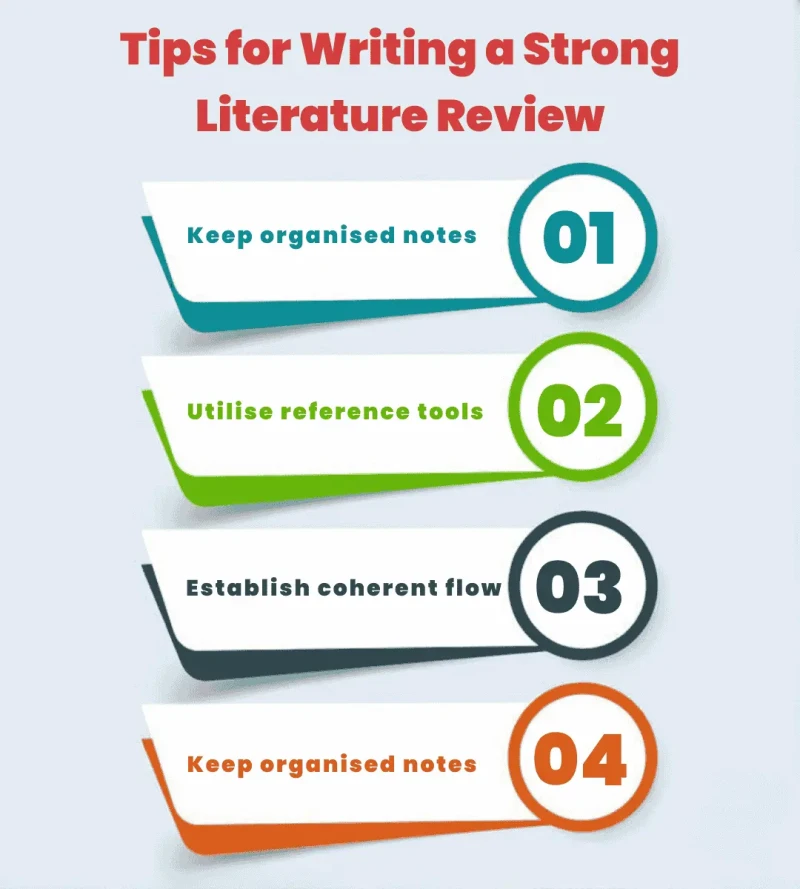
Write down major points, findings, and observations from each study you read so that synthesis will be easier later.
Use such tools as Mendeley, Zotero, or EndNote to manage your sources and make proper citations.
Ensure that each paragraph logically leads to the next, forming a coherent story for your literature review.
Use the same tone, tense, and formatting throughout for ease of readability and professionalism.
A good literature review of a project is the backbone of any successful research, offering clarity, context, and credibility. It is important in the identification of research gaps, the development of your methodology, and relating your study to what already exists. A good literature review is a sign of a good project, and doing it right can go a long way in improving your overall research quality.
If you are in need of assistance with creating a literature review for your project,you can contact our professional guidance support. We will walk you through each step to deliver a well-structured, cohesive, and publication-level review.

Sentiment Analysis Research Papers: A Step-by-Step Research and Publication Guide
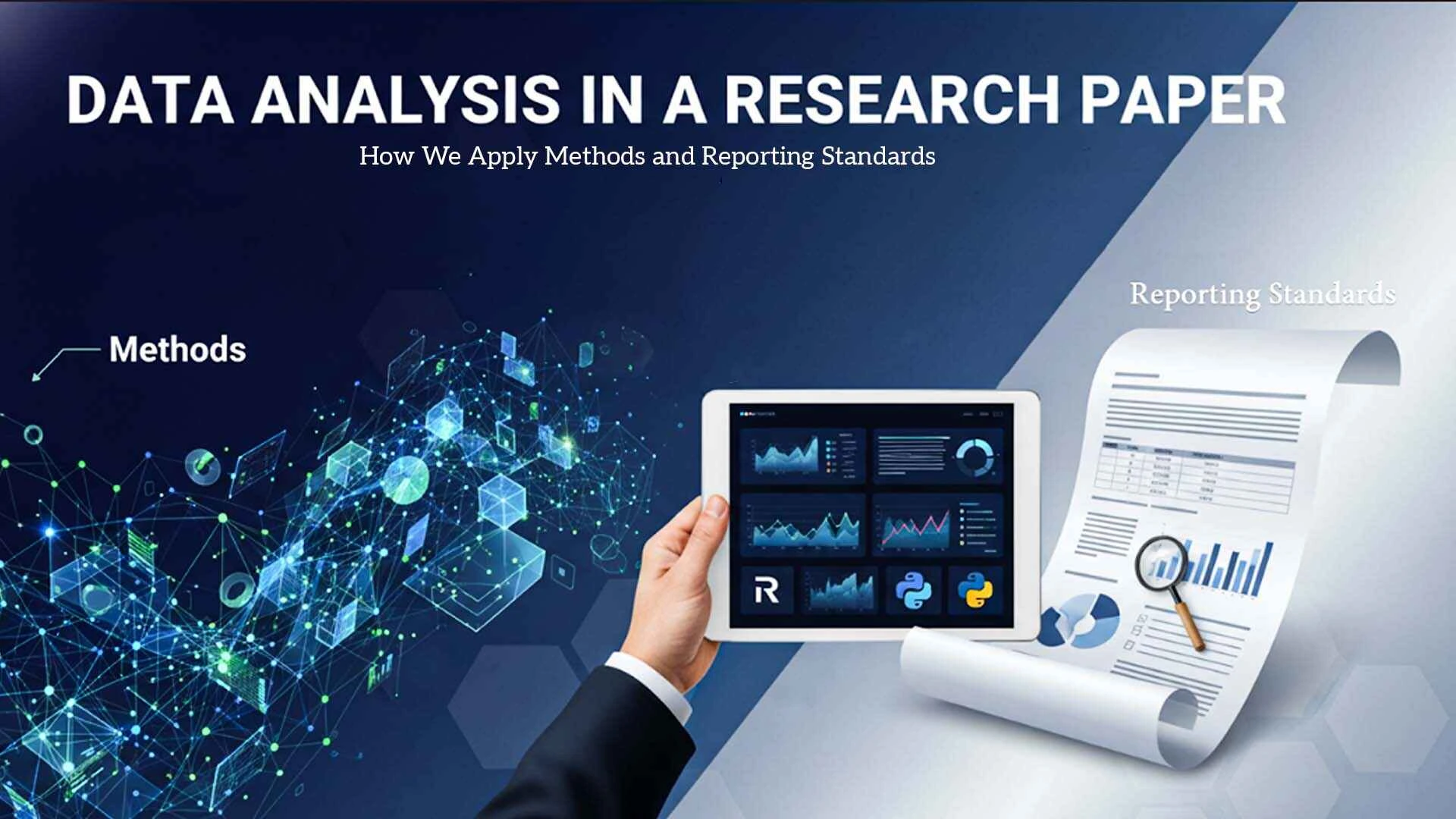
Data Analysis in a Research Paper: How We Apply Methods and Reporting Standards
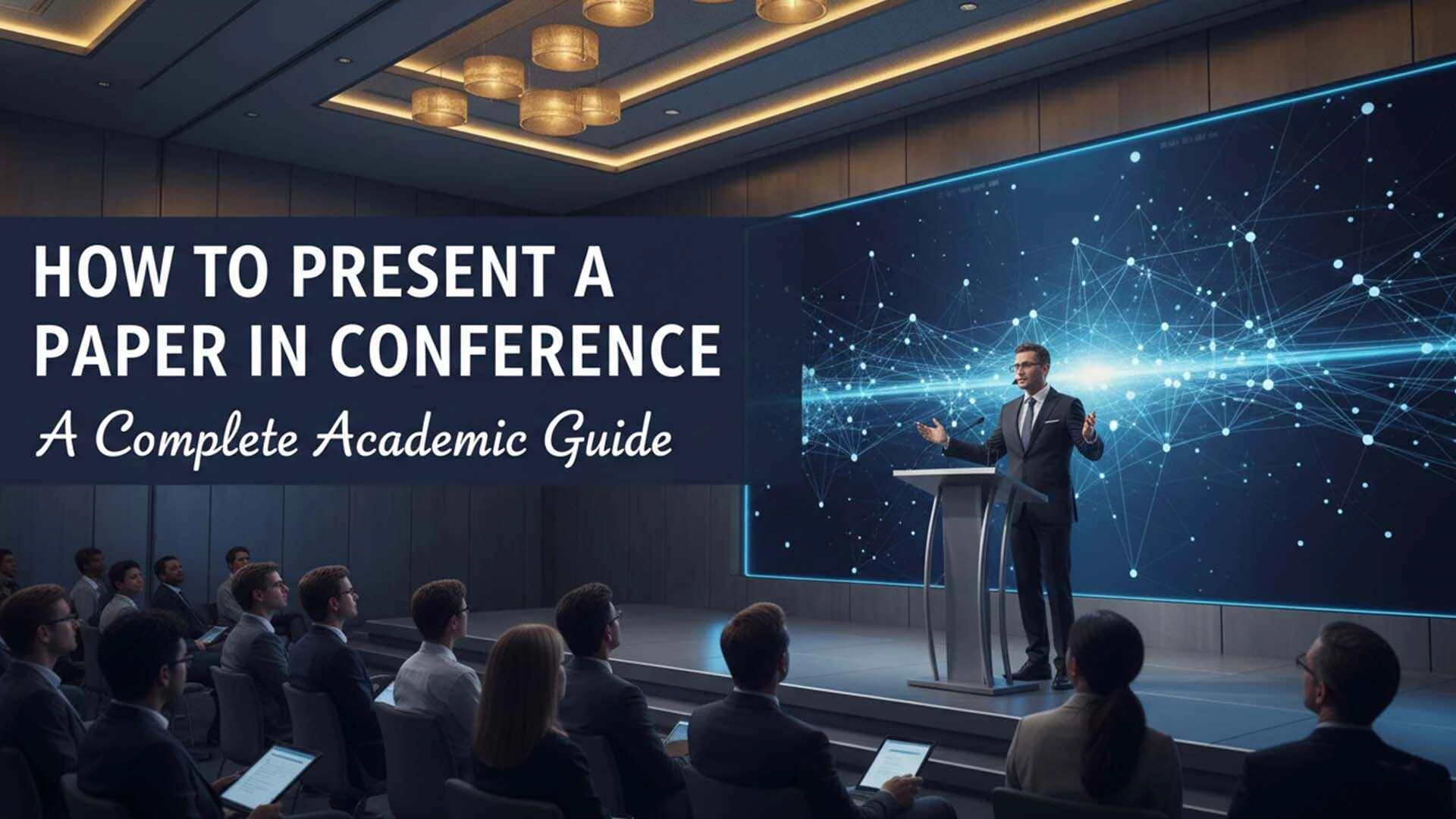
How to Present a Paper in a Conference – A Complete Academic Guide

Problem Identification in Marketing Research: Methodologies, Sources, and Analytical Approaches
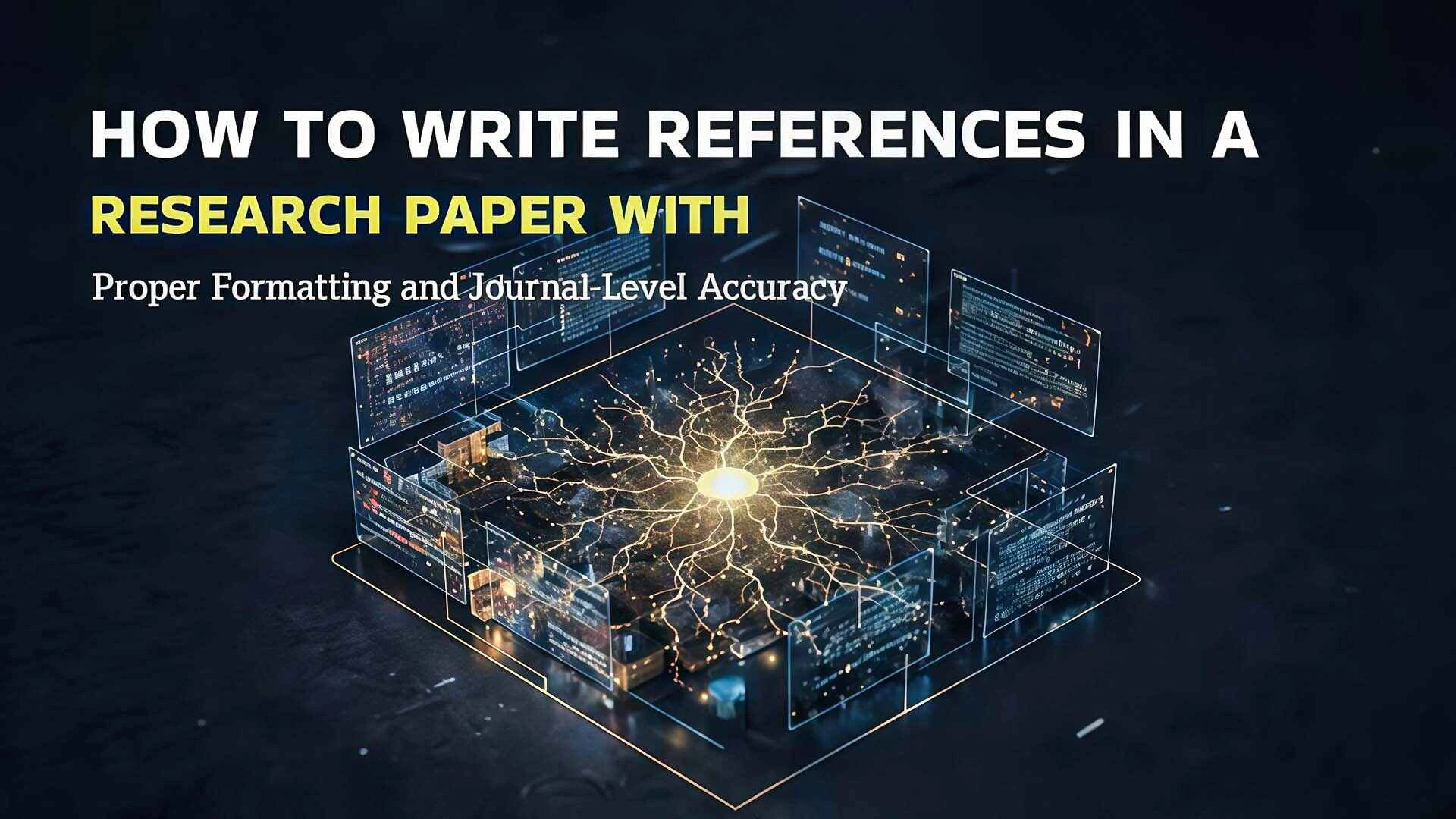
How to Write References in a Research Paper with Proper Formatting and Journal-Level Accuracy